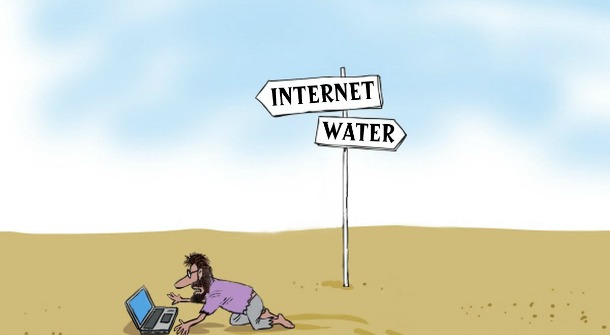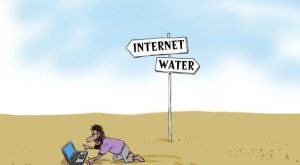“Addiction begins with the hope that something ‘out there’ can instantly fill up the emptiness inside.”
-Jean Kilbourne
It is very easy to take internet usage at face value. However, Internet Addiction has been diagnosed as a new clinical disorder that causes relational, occupational, and social problems. This compulsion is a global issue that begins in the early formative years and continues through to adulthood, middle age and beyond . Given the popularity of the Internet, detecting and diagnosing Internet addiction is often difficult as its legitimate business and personal use mask addictive behaviour (Young, 2010). A study in the US estimated that nearly one in eight Americans exhibits one possible sign of problematic Internet usage. It is most likely that this is a global trend.
The change in technology brings with it new challenges and problems. As the Internet rapidly moved into homes, schools and businesses, early studies estimated that nearly 6% of users suffered from Internet addiction and this may very well be the tip of the iceberg as reliance on computers and mobile phones continues to increase. We work, find love, friends, and entertainment via the internet as well. All of which is very appealing.
What are some of the symptoms of Internet Addiction?
- Preoccupation with the internet
- An inability to control usage
- Hiding or lying about the behaviour to family, friends and employers
- Psychological withdrawal – switching off from what’s going on around you
- Continued use despite consequences of the behaviour
- Feeling restless, irritable, depressed or moody when not using the internet
- Jeopardizing relationships, employment/work, and education opportunities because of internet use
- Using the internet as a way of escaping reality and problems, relieving negative feelings or depressed mood
- Losing track of time
- A sense of euphoria when online and panic when offline
- Feelings of guilt at the amount of time spend on line
- Physical discomfort – back pain, dry eyes, weight gain, sleep disturbances
- Reduction in time communicating with family members and cessation of social activities with loved ones – all of which need nurturing for relationships to thrive
- Denial of internet habit with the rationalizing that it is part of the job or study requirement
Addiction is a family disease… one person may use,
but the whole family suffers.
Tips for tackling Internet Addiction:
- Set a time for your internet usage. Use a clock with an alarm if you need to
- Set goals as to what you wish to achieve on the internet – be specific in these goals and the time allocated. Stick to it.
- Ask yourself “Is what I am doing on the internet eroding that time my family and I get to spend together?”
- There is life beyond the internet. Instead of going online, take a walk, read a book, call a friend or visit someone you haven’t seen for a time.
- Lead by example when it comes to teaching your children about responsible internet usage. Ask yourself…”What is that I want my children to learn about the internet and mobile phones?”
- Learn to develop coping skills – to deal with stress, frustration, anger and other emotions.
- See a therapist who uses Cognitive Behaviour Therapy and can help you through this challenging time of dealing with internet addiction.
- Call a hotline or seek out a support group. You are not alone.
- If family voice their concern about the time you spend on the internet, it is because they care. They deserve the time to be heard.
- Internet settings/strategies:
- Turn off unnecessary notifications
- Keep your screen simple and clean
- Only have one program open at a time
- Use a news aggregator which allows you to look at your favourite websites in one place.
eg. Feedly and Digg Reader
- Delete unused or useless accounts
- Download or buy an internet-blocking app which will restrict internet time.
- Develop new hobbies – there’s a whole world of activities for you to enjoy.
- Test out whether you are deluding yourself about your degree of reliance on the internet.
- Check out … Internet Addiction Test (IAT) – Dr Kimberly Young Partner’s Internet Addiction Test (counselling resource)
“A habit cannot be tossed out the window, It must be coaxed down the stairs a step at a time.”
-Mark Twain


